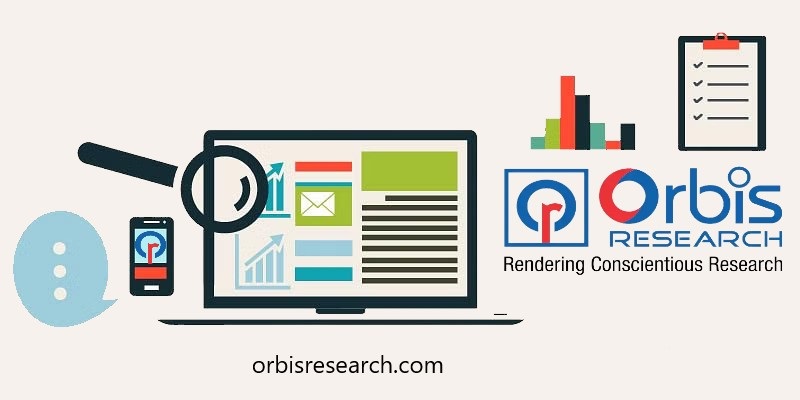
Press Release, Orbis Research The Logistics Automation Software Developing Market is a rapidly evolving sector with substantial growth potential, driven by emerging trends, technological advancements, and shifting consumer demands. This report provides a comprehensive analysis of the markets importance, key components, leading players, supply chain dynamics, and future expectations. It is an essential resource for businesses, investors, and industry professionals looking to understand the market landscape and capitalize on opportunities.
Request a sample report @ https://www.orbisresearch.com/contacts/request-sample/6555174
Why This Market Matters
The Logistics Automation Software Developing Market is crucial for several reasons: 1. Economic Impact: The market contributes significantly to economic growth by generating employment, fostering innovation, and stimulating investment.
2. Technological Advancements: It serves as a hub for technological innovation, influencing other sectors and driving industry-wide improvements.
3. Consumer Demand: The market responds to changing consumer needs, providing essential products and services that impact daily life.
4. Global Reach: With its expanding global footprint, the market offers diverse opportunities for international expansion and cross-border collaboration.
Key Components of the Market
The Logistics Automation Software Developing Market comprises several critical components:
1. Product Categories: A wide range of products, from high-tech gadgets to essential commodities, each catering to specific consumer needs and preferences.
2. Applications: The market serves various applications, including consumer electronics, industrial uses, and emerging sectors like smart technology and renewable energy.
3. Consumer Segments: Diverse consumer segments, from individual buyers to large enterprises, each with distinct requirements and purchasing behaviors.
4. Regulatory Framework: The market operates within a complex regulatory environment, including safety standards, trade regulations, and environmental policies.
The top 25 players in the Logistics Automation Software Developing market exhibit a diverse geographical concentration, reflecting their strategic focus on key global regions. Major companies such as Company A, Company B, and Company C have significant operations in North America and Europe. Meanwhile, companies like Company D and Company E are concentrating their efforts in the rapidly growing Asia-Pacific region, capitalizing on emerging opportunities and expanding market presence. Other notable players, including Company F and Company G, have a balanced approach, with a strong presence in both North America and Asia-Pacific, ensuring a broad market reach and resilience against regional fluctuations. This geographical distribution underscores the global nature of the Logistics Automation Software Developing market and highlights the strategic importance of region-specific investments and operations.
Geographical Concentration: – North America: Dominates with major players and high consumer demand.
– Europe: Significant presence of established companies and growing market.
– Asia-Pacific: Rapid growth region with emerging leaders and high market potential.
– Latin America: Expanding market with increasing investment opportunities.
– Middle East: Growing presence of key players and evolving market dynamics.
Market Supply Chain Dynamics Supply Chain Overview:
1. Raw Materials: Sourcing of raw materials from global suppliers, with a focus on sustainability and cost-efficiency.
2. Manufacturing: Centralized and decentralized production facilities to meet regional demands and mitigate supply chain risks.
3. Distribution: Complex distribution networks involving wholesalers, distributors, and direct-to-consumer channels.
4. Logistics: Advanced logistics strategies to ensure timely delivery and reduce costs, including technology-driven solutions for inventory management and transportation.
Logistics Automation Software Developing market Segmentation by Type:
Warehouse Management Software
Transportation Management Software
Others
Logistics Automation Software Developing market Segmentation by Application:
E-commerce
Retail
Manufacturing
Transportation
Others
Direct Purchase the report @ https://www.orbisresearch.com/contact/purchase-single-user/6555174
Challenges: 1. Supply Chain Disruptions: Assessing the risks of interruptions caused by geopolitical tensions, natural disasters, and pandemics, and their impact on the continuity of supply chains.
Regulatory Compliance: Understanding and adapting to the diverse regulatory requirements across different regions to ensure consistent compliance and avoid legal challenges.
Cost Fluctuations: Addressing the challenges posed by fluctuating raw material prices and currency exchange rates, and developing strategies to manage cost variability effectively.
Opportunities: 1. Technological Integration: Leveraging technology for supply chain optimization and efficiency.
2. Sustainable Practices: Implementing environmentally-friendly practices to comply with regulatory standards and align with consumer demand for sustainability, thereby enhancing brand reputation and operational efficiency.
3.Global Expansion: Identifying and penetrating new markets and distribution channels to broaden global presence, drive growth, and leverage opportunities in emerging regions.
Key Players in the Logistics Automation Software Developing market:
Honeywell Intelligrated
Knapp AG
Murata Machinery
Jungheinrich AG
Beumer Group
Daifuku
SSI Schaefer
Mecalux
Vitronic
Swisslog
Dematic Corp.
TGW Logistics Group GmbH
Toshiba Infrastructure Systems & Solutions Corporation
What to Expect Based on Current Performance
1. Continued Growth: The market is expected to maintain a robust growth trajectory, driven by increasing demand and technological advancements.
2. Innovation: Ongoing innovation and product development will shape the market, with new solutions addressing emerging consumer needs.
3. Competitive Landscape: Intensified competition among leading players will drive market dynamics, influencing pricing strategies and market share.
4. Regulatory Developments: Evolving regulations will impact market operations, requiring businesses to stay agile and compliant.
Do You Have Any Query Or Specific Requirement? Ask to Our Industry Expert @ https://www.orbisresearch.com/contacts/enquiry-before-buying/6555174
Key Factors We cover:
1. Technological Leadership: Companies leveraging cutting-edge technology and innovation will have a competitive advantage.
2. Customer-Centric Approach: Businesses focusing on customer needs and delivering tailored solutions will enhance market appeal.
3. Global Reach: Expanding into new markets and strengthening global presence will drive growth and revenue.
4.Sustainability: Prioritizing sustainable practices and ethical operations will appeal to environmentally-conscious consumers and stakeholders, enhancing brand reputation and fostering long-term trust.
About Us
5. Strategic Partnerships: Forming strategic alliances and collaborations will provide access to new opportunities and enhance market position. The Logistics Automation Software Developing Market is a dynamic and growing sector with significant opportunities for businesses, investors, and stakeholders.
Contact Us:
Hector Costello
Senior Manager – Client Engagements
4144N Central Expressway,
Suite 600, Dallas,
Phone: +1 (972)-591-8191,
Email: sales@orbisresearch.com